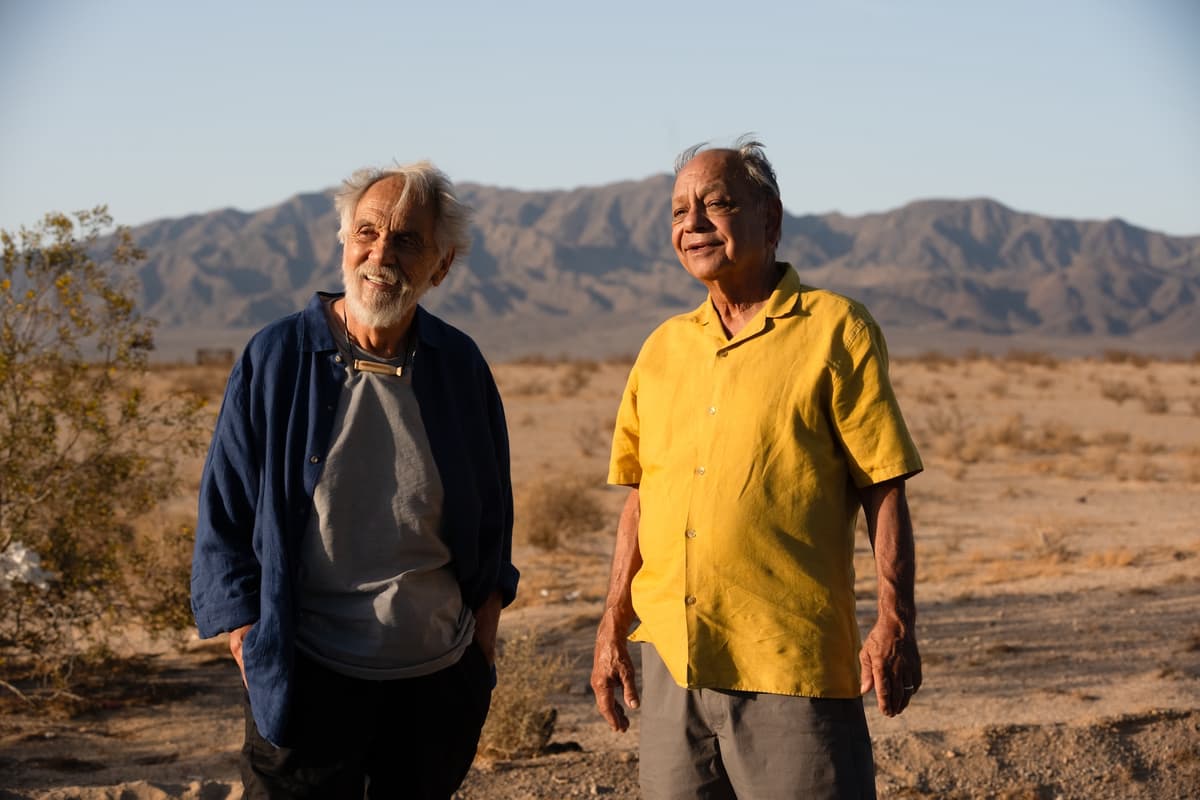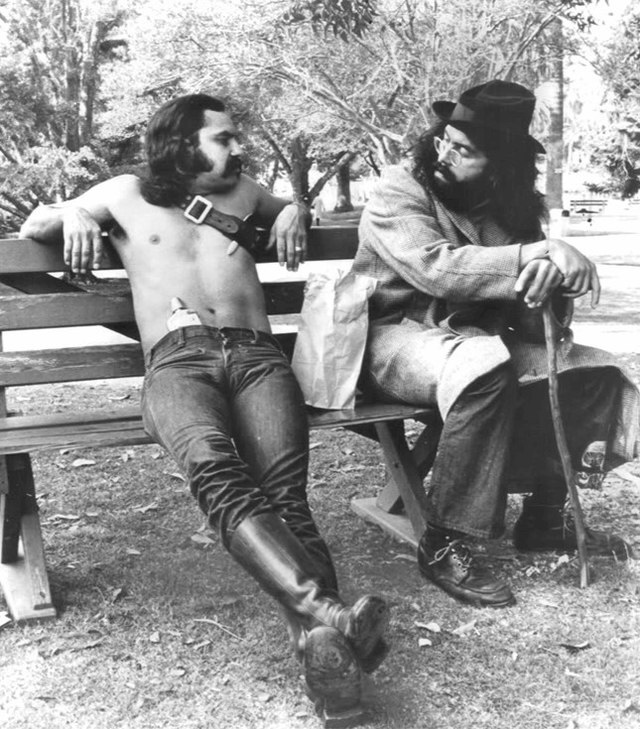David Bushell Has Made a Valentine to Counterculture Comedians With New Documentary ‘Cheech & Chong’s Last Movie’
Bushell employs vintage concert clips, documentary photographs, animated digressions, television appearances, and interviews with Chong and Marin to track the comedy team’s unlikely rise and extended fall.

Among the least known but most telling moments in the career of a comedian, actor, and art collector, Cheech Marin, occurred on a National Public Radio program, “The Moth Radio Hour.” The free-form story-telling program played host to Mr. Marin on two occasions, during which he told of, among much else, an abiding love for pottery and lessons learned from his father, a former Marine and an officer in the Los Angeles Police Department.
For those of us who grew up knowing Mr. Marin as a fast-talking Chicano given to throwaway malapropisms, Pedro de Pacas, these monologues proved surprising in their plain-spoken, sometimes tearful vulnerability.
Public personas are different from the private individuals who inhabit them, and it’s worth noting that Mr. Marin has long since ditched the signature oversized moustache he wore when he partnered with Tommy Chong to form the comedy duo known as Cheech and Chong.
In David Bushell’s new documentary, “Cheech & Chong’s Last Movie,” we watch as Messrs. Chong and Marin chat, crack wise, and search for elusive tokes while driving through the desert southwest. At one point, Mr. Chong asks his partner about the whys and wherefores of his missing facial hair. For a fleet second, the boys’ patented stoner riffing comes to a halt. Mr. Marin tenses up and replies: “Nothing lasts forever.”

Cheech and Chong are no longer boys: Mr. Marin is 78 and Mr. Chong, 86. Nor have they been a proper team in decades. Although the two men reunited in 2010, Cheech and Chong haven’t collaborated on a new body of work since 1985, when they released a combination comedy album and short-form mockumentary, “Get Out Of My Room.” Messrs. Marin and Chong subsequently parted ways, with their stars on the fade and professional conflicts making a continuing partnership untenable.
A Hollywood veteran who’s had his hand in fare such as “Sling Blade” (1996), “Eternal Sunshine of the Spotless Mind” (2004), and “Dallas Buyers Club” (2013), Mr. Bushell has made a valentine to counterculture comedians for whom the passing years and changing legal statutes have transformed into mainstream elder statesmen. Diminish the illicit and previously illegal frisson of their comedy, and what do you have? Burlesque comedians who thrive more on chemistry than on jokes per se.
Mr. Bushell employs vintage concert clips, documentary photographs, animated digressions, television appearances, and interviews with Messrs. Chong and Marin to track the unlikely happenstance of how an Angeleno draft dodger teamed up with a Chinese-Canadian strip club proprietor. Both men grew up in modest circumstances, experienced racism, and had an inherent distrust of authority figures. Through circumstances that can’t help but seem predestined when seen in a rearview mirror, the multicultural duo hit it big.
Their rise to stardom was keenly in sync with the tumult of the late 1960s and its subsequent co-opting by mass media. Comedy albums by Cheech and Chong sold in the millions and the two were hailed as rock stars. The most surprising thing about the success of their first film, Lou Adler’s “Up In Smoke” (1978), was that industry insiders were surprised by its success. The times they had been a changin’: The pot-smoking goofballs at the center of Mr. Adler’s ambling film proved not only bankable, but kind of lovable.
The team continued to make financially successful films to increasingly diminished comedic effect. If “Cheech and Chong’s Next Movie” (1980) captured a woozy, catch-as-catch-can spirit, the follow-ups were less of the same. Mr. Marin began to bristle under the dominion of Mr. Chong’s direction, and the corresponding resentments are felt to this day.
After the duo parted ways, Mr. Marin went on to find success as a solo comedian and actor — he spent six years as Don Johnson’s sidekick on the television program “Nash Bridges.” Mr. Chong’s career was more variable and included nine months in jail for selling drug paraphernalia.
Toward the end of “Cheech and Chong’s Last Movie” the pair do more than reiterate their creative falling apart: They get testy about it. Although Mr. Bushell ultimately exposes the cinematic artifice behind his film, the long-standing difficulties between his two charges are honestly addressed, as is their walking-on-eggshells rapprochement. Fans will applaud the latter and enjoy the long, strange trip of Cheech and Chong.

